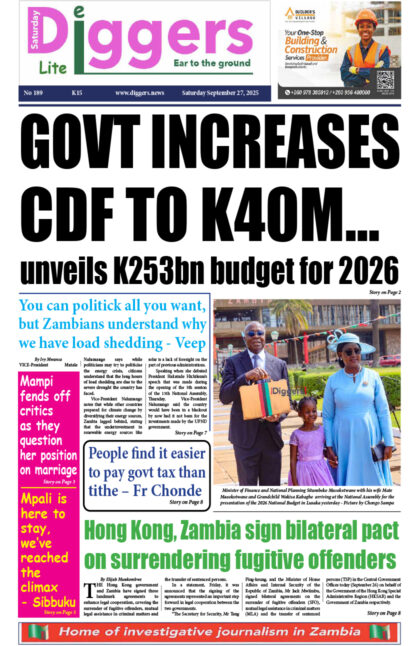University of Zambia (UNZA) senior lecturer in charge of livestock and animal health economics Dr Chisoni Mumba says the animal movement ban that government has effected will worsen the hunger situation in Southern Province.
Dr Mumba told News Diggers! that farmers in areas where dry spells had been experienced in the just-ended farming season were struggling with water to graze their animals, and that the animal movement ban had just worsened their situation.
Dr Mumba, who by press time was conducting research in Southern Province to assess the impact of the drought on the Province, observed that the hunger and dry boreholes in Namwala District specifically was worrying.
“I am currently in Namwala conducting research on the estimation of east coast fever disease burden among cattle farmers, but what I found is quite worrying. I have been to Nakamboma, Chitongo, Kabulamwanda, and Maala, and in all these areas, farmers are faced with dry streams and boreholes due to drought, hunger and livestock movement ban arising from an outbreak of Foot and Mouth Disease (FMD). The situation is quite bad and yet to become more severe as we approach October. Farmers are struggling with water because nearby streams have gone dry, hence resorting to pumping water from hand pumps for animals within or near the villages. Each adult animal requires about 50 litres of water per day and a farmer with 100 cattle will have to spend most part of the day pumping water for cattle, otherwise animals will have to walk very long distances to drink water from the Kafue River,” said Dr Mumba.
“A tin of maize sells at K70 and a bag of mealie meal at K125. Livestock movement ban due to FMD has made things worse as farmers rely on the local abattoirs, which have reduced prices due to high supply of unthrifty cattle due to disease conditions and poor nutrition (dry grass). Farmers mostly sell small livestock (goats, sheep, pigs) to Lusaka, but they now can’t due to the livestock movement ban which further worsens their capacity to buy the expensive mealie meal. This is, indeed, a tragedy. The effects on climate change are vivid and quite severe.”
He observed that there was need for livestock farmers to urgently diversify their investment into other productive sectors of the economy to minimise their risk.
“In the long-run, farmers must, among other things, start thinking more of diversifying the risk by investing into other business ventures. This will mean increasing off-takes per year and not only sell when there is a pressing financial need in a household. This measure will also control cattle numbers and reduce pressure on vegetation in the Kafue flats,” said Dr Mumba.
























